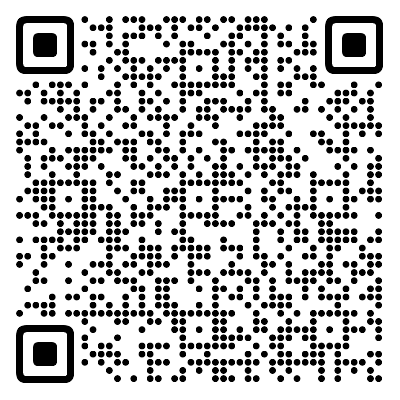Statement of Purpose
Applicant: XX DOB: Sep 04, 1982 Program: Ph.D. in Organizational Behavior and Industrial Relations
According to Random House Unabridged Dictionary (2nd Edition), the word “student” can be defined as either “a person formally engaged in learning, esp. one enrolled in a school or college” or “any person who studies, investigates, or examines thoughtfully.” As a student of economics, I have endeavored to conform to this definition not in an “either-or” manner but in a “both-and” fashion. This is because to be a student who receives the input of knowledge, though fundamental and essential, is nevertheless limited and passive. To compensate for this inadequacy, I have tried to be a thoughtful student who generates subjective output through critical inquiries, exercising my own subjectivity and creativity and making original contributions to the academic discipline I am so interested in.
The impulse toward a student of input and the impulse toward a student of output have been closely intertwined in me and have alternated throughout my intellectual development as an undergraduate at the Department of Finance, School of Economics, XX University. At this century-old, most prestigious comprehensive university of China, which was the first to champion the development of science and democracy in contemporary Chinese history, I was taught how to learn and to inquire, to cultivate the spirit of skepticism and to subject even the most orthodox theories to the most rigorous challenges.
My immediate role model is Prof. XX who, a celebrated economist himself, served as president of XX University during the late 1950’s. When he proposed the idea of birth control in his book XX, he was accused of being anti-communist and was persecuted on the allegation that he planned to thwart the country’s massive “socialist construction” that required massive human resource. Forced to resign his presidency, he was deprived of the right to publish his research findings. Several decades later, however, amid China’s population explosion and its raging consequences, his theories prevailed and radical measures of birth control have been introduced. To a great extent, economists are the conscience of society who seek underlying truth even at their personal sacrifices, under the spirit of the free play of the mind.
In learning economics at a university which is so imbued with time-honored academic legacy and where are concentrated the best talents of the country, I did my best to become the elite of the elites so that I could prove myself her worthy student. Toward this objective, I undertook my academic work with great initiative. This not only led to my 3.63 GPA (including highest scores for quite a few core courses) in my specialty but also a second bachelor’s degree of science in mathematics and applied mathematics. In addition, I have completed a total of six research papers. Without any exaggeration, this achievement has been very phenomenal in the entire School of Economics.
Based on a comprehensive spectrum of coursework and confronted with the economic realities of the country, I found myself increasingly interested in organizational behavior and industrial relations, which study factors directly related to economic growth. My strong proficiency in mathematical modeling laid the cornerstone for my research. Inspired by The Theory of Industrial Organization by Jean Tirole, I focused my first study on the “industrial clusters” in China’s eastern coastal regions. By constructing a highly simplified model, I demonstrated how China’s lack of a well-developed market mechanism and enterprise system has resulted in the formation of industrial clusters in the small and medium eastern cities and how an optimum pattern of labor division among the clusters contributes to an unparalleled regional competitiveness. The product of this research was two papers XX and XX (the latter published this July in XX, a leading scholarly journal), in which the issues beyond the theoretical framework of mainstream economics models are addressed. The theoretical approaches generalized from this study can account for the “Friedman Puzzle”.
In a lecture hosted by deputy director of the Department, I made a presentation on the first paper, a core working paper of Economics Workshop, to the teachers and graduate students of our school in Nov. 2003. This was an unprecedented event for an undergraduate. A similar event occurred when a graduate seminar, hosted by the vice dean of the School, was held on another core working paper of mine at the Workshop—XX. Through a model-based analysis of the just-in-time mechanism of management and efficiency of management in the restaurant industry, my study demonstrates that the promotion of a new industrial system is determined not by the short-term improvement in management efficiency, not by the market incentive mechanism and the realization of large-scaled management.
My interest in organizational behavior and industrial relations motivated me to study the reform of China’s state-owned enterprises in my XX published in XX (04/2004). Modeled on the representation pattern of the U.S. Senate and House of Representatives, I proposed a voting system that maintains the status of majority shareholder (the state) while maximizing the protection of minority (non-state investors) interests. My research achievements also include XX, a critique of the symmetric monopolistic competition model of Avinash Dixit and Joseph Stiglitz, XX, and XX
Since this September, I have been undertaking my Master’s program at the Department of Economics, University of XX. I was admitted and granted fellowship on the strengths of my distinguished academic performance, the research work performed and research papers I have published as an undergraduate. I am working on MA program (B), which is specifically offered to students who plan on continuing into the Ph.D. program. Concomitantly, I am working as TA, marking papers and running tutorials. The courses I am taking (together with the first-year doctoral students) allow me to further accumulate extensive background skills in macroeconomics, microeconomics, micrometrics and mathematics. By the time I complete my MA program (I have the confidence to be a straight-A achiever), I will have already taken all the classic courses in a standard Ph.D. program in north America.
Although my admission into the Ph.D. program at XX is automatic upon my completion of the MA program, I choose to apply for a Ph.D. in the United States where scholarship on economics is reputed as the most cutting-edge. Most importantly, I am looking for a mentor whose research bears close affinity to mine— Organizational Behavior and Industrial Relations. The HAAS School program of XX is strongly oriented toward discipline and research. Emphasis is laid on preparing students to advance their knowledge in particular fields through the application of theory from the social sciences, mathematics, or statistics. The current research focuses on economic theories of firms, markets, and their applications to public policy and business strategy. Your cutting-edge research has compelled more and more economists to devote attention to organizational theory.
I fully agree with the existentialist proposition by Jean-Paul Sartre that existence precedes essence. In choosing the career path of an economics researcher, I wish to accomplish important missions. The special cultural, historical, ideological, and social conditions of China have produced special organizational patterns and industrial relations that do not fit into any neat categories of western economics and are not amenable to ready explanations. In its campaign to build up a “socialist market economy”, China has triggered drastic organizational and industrial changes over the past decade. Without incorporating the particularity of such changes, the mainstream theories in the West would be incomplete. On the other hand, the number of Chinese economists with strong mathematical modeling skills and training in standard western economics is limited. In this regard, I see myself as a potential gap abridger.
In The Wealth of Nations, Adam Smith made the classic observation that individuals acting in their own self-interest can benefit society more than they expect to. In fulfilling my egocentric interest in doing scholarly work on economics, I wish to perform my sociocentric roles. My passion for economics makes me mission-bound. For me, to be or not to be an economist, that is not a question. My only question is whether I can work together with an elite professor whose guidance will help me develop my research potential to the fullest extent and become a high achiever — a true student of economics who does not work inside the romanticized ivory tower but intensely committed to the well-being of the larger society.
>>我感興趣,馬上在線咨詢
精彩活動 海外院校 升學(xué)導(dǎo)師 成功案例 背景提升 國際游學(xué) 海外服務(wù)
留學(xué)國家: 美國 加拿大 英國 澳大利亞 新西蘭 亞洲國家 歐洲國家
院校推薦: 美國大學(xué)院校 英國大學(xué)院校 澳洲大學(xué)院校 加拿大大學(xué)院校 新西蘭大學(xué)院校

